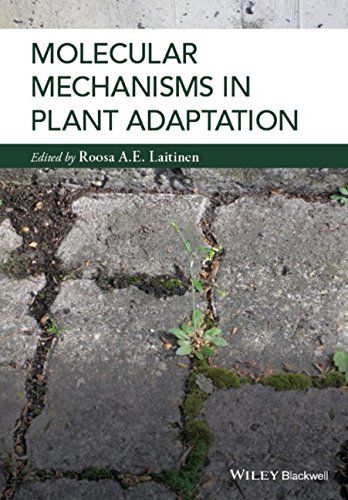

Most ebook files are in PDF format, so you can easily read them using various software such as Foxit Reader or directly on the Google Chrome browser.
Some ebook files are released by publishers in other formats such as .awz, .mobi, .epub, .fb2, etc. You may need to install specific software to read these formats on mobile/PC, such as Calibre.
Please read the tutorial at this link. https://ebooknice.com/page/post?id=faq
We offer FREE conversion to the popular formats you request; however, this may take some time. Therefore, right after payment, please email us, and we will try to provide the service as quickly as possible.
For some exceptional file formats or broken links (if any), please refrain from opening any disputes. Instead, email us first, and we will try to assist within a maximum of 6 hours.
EbookNice Team

Status:
Available5.0
17 reviewsPlants are forced to adapt for a variety of reasons— protection, reproductive viability, and environmental and climatic changes. Computational tools and molecular advances have provided researchers with significant new insights into the molecular basis of plant adaptation. Molecular Mechanisms in Plant Adaptation provides a comprehensive overview of a wide variety of these different mechanisms underlying adaptation to these challenges to plant survival.
Molecular Mechanisms in Plant Adaptation opens with a chapter that explores the latest technological advances used in plant adaptation research, providing readers with an overview of high-throughput technologies and their applications. The chapters that follow cover the latest developments on using natural variation to dissect genetic, epigenetic and metabolic responses of plant adaptation. Subsequent chapters describe plant responses to biotic and abiotic stressors and adaptive reproductive strategies. Emerging topics such as secondary metabolism, small RNA mediated regulation as well as cell type specific responses to stresses are given special precedence. The book ends with chapters introducing computational approaches to study adaptation and focusing on how to apply laboratory findings to field studies and breeding programs.
Molecular Mechanisms in Plant Adaptation interest plant molecular biologists and physiologists, plant stress biologists, plant geneticists and advanced plant biology students.